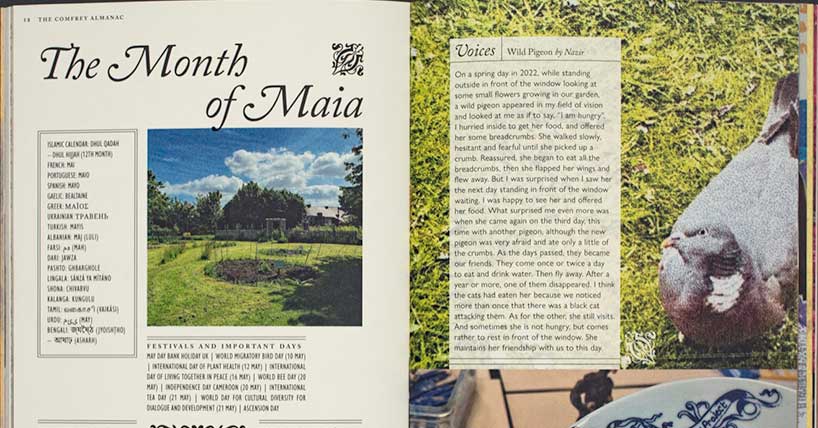Scotland elections May
Comment: Scotland is ready for the May elections, despite the pandemic
Published on: 15 January 2021
Writing for The Conversation, Alistair Clark and Toby James discuss the plans to hold Scottish elections in May.

Important Scottish parliament elections are scheduled for May 2021 and the expectation is that the Scottish National Party will emerge as the biggest party, potentially even with enough votes to form a majority government, after ruling as a minority since 2016.
However, it has been argued by former first minister Henry McLeish, among others that these elections, should be postponed because of the coronavirus pandemic.
First Minister Nicola Sturgeon said that she sees “no reason at this stage why the election wouldn’t go ahead”. The subtext for critics might be “why would she, with the polls so favourable?” Victory for the SNP would allow it to claim a mandate for a second independence referendum. This is, therefore, a historic political opportunity for the SNP to realise that goal. It could be a defining moment for Scotland and the UK.
Election postponements are deeply political and there is often an incentive for those in power to keep or switch the date for political advantage. But in this case, Sturgeon doesn’t need to be playing politics. The lead in the polls is sizeable and has been consistent – often by more than 30 percentage points. So a delay would be unlikely to make a difference.
Also, Scotland is in good shape to hold these elections. Electoral administrators and policymakers have been planning in depth for COVID-19 mitigations for May’s elections since at least mid-2020.
The Scottish parliament has the power to legislate on electoral law for Scottish parliament and local elections. At the end of December, it passed the Scottish General Election (Coronavirus) Bill. This provides for a range of contingencies to allow the elections to proceed. Crucially, this was passed on a cross-party basis, with 117 votes for and none against. Scotland was also unique among the UK’s four electoral jurisdictions in allowing a few council byelections to be held late in 2020, so Scottish electoral administrators have some experience of conducting elections under COVID-19 circumstances. This situation contrasts with the renewed debate in England, where no such cross-party legislation has yet been developed.
How elections will work
The contingency legislation for the Scottish elections contains various measures to make voting possible within the confines of coronavirus rules.
To minimise traffic at polling stations, for example, more people will be encouraged to vote by post. Pre-pandemic, rates of postal voting had already been on the increase – up from 11.2% in 2007 to 18% in 2016. Levels of postal voting under pandemic conditions are expected to be around 40%, but the legislation makes it possible for the vote to be held entirely by post, if that’s necessary.
Postal voting is logistically complex. It takes time to register voters for it and to implement the various security measures that legislation rightly provides for. The Scottish government is providing extra funding to electoral registration officers to ensure they have the resources to process increased numbers of postal votes. If the vote does have to be fully postal, the elections will need to be postponed for six months.
The legislation allows for additional contingencies should the pandemic worsen. There has been discussion about extending voting over several days to help with social distancing. This was put into place in Queensland, Australia and is often recommended. It would be logistically challenging and may necessitate a delayed election. Provision has been made for this in the Scottish General Election (Coronavirus) Act, allowing ministers to extend voting on the recommendation of the Electoral Management Board. The expectation remains that the election will be held over one day.
Provision has also been made should MSPs need to delay returning to parliament to choose a first minister because of the pandemic. Regardless of any potential postponement, the elections have to be held by November 5 2021.
Making it happen
A widespread public education campaign will be key to ensuring the May 2021 Scottish parliament elections are a success. This should focus on the need to register early for postal votes. Often voters leave this to close to the deadline. Doing so in 2021 could lead to considerable pressure on electoral administrators. It could also lead to voters missing the deadline. This could mean that they have to attend polling stations, increasing the risk of spreading coronavirus. This postal vote campaign needs to start now. It needs to use all available channels of communication.
There needs also to be clear communication to the media, to voters and political parties that counts will take longer. Results are unlikely to be available overnight.
Communicating what to expect in polling stations will also be important. Voters will find social distancing in place, where appropriate, with one-way systems and possible limits on numbers in polling stations. There will be regular sanitisation and an expectation that voters will wear face coverings. In recent years, there has been a conspiracy theory and movement against pencils in polling booths (using #UsePens on social media), suggesting that pencil marks are insecure and might be changed. In 2021, voters may actually have to take their own instead of using a shared pencil, or single-use pens or pencils may have to be provided.
A fine balance will need to be struck on any future decisions if the Scottish pandemic gets worse. Principles of electoral integrity normally suggest that decisions should be made as early as possible to allow voters, parties and administrators time to adapt. The pandemic puts pressure on this principle – and changing conditions may require a last-minute rethink. But as it stands, Scotland has put in much of the preparatory work and appears ready to conduct these crucially important polls as originally scheduled.
Alistair Clark, Reader in Politics, Newcastle University and Toby James, Professor of Politics and Public Policy, University of East Anglia
This article is republished from The Conversation under a Creative Commons license. Read the original article.



